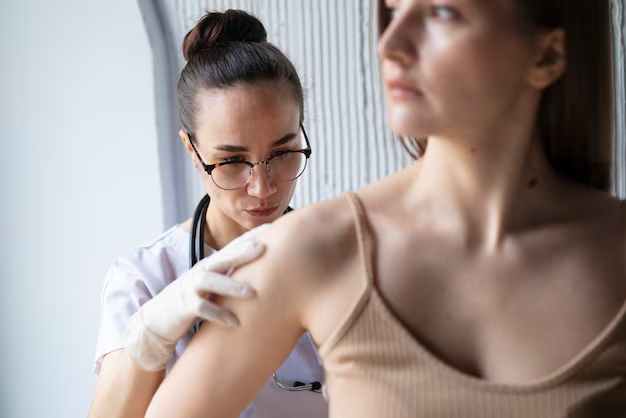Understanding Skin Cancer Treatments: What You Need to Know
Skin cancer is one of the most prevalent forms of cancer worldwide, affecting millions annually. With early detection and the right treatment approach, many types of skin cancer are highly treatable. This comprehensive guide aims to provide an engaging overview of how skin cancer is typically treated, explore relevant subtopics, and empower readers with the knowledge needed to navigate this medical journey.
What is Skin Cancer?
Skin cancer is the uncontrolled growth of abnormal skin cells. It occurs when mutations in the DNA of skin cells cause them to multiply rapidly. These cancers primarily develop on skin exposed to the sun but can also appear in less obvious areas, such as under nails or on the soles of the feet.
Types of Skin Cancer
- Basal Cell Carcinoma (BCC): The most common form, appearing as a waxy bump, usually occurs in sun-exposed areas.
- Squamous Cell Carcinoma (SCC): Often found on sun-exposed skin, this type may appear as a flat lesion with a scaly surface.
- Melanoma: Less common but more aggressive. Melanomas can appear anywhere on the body and often look like new or changing moles.
First Steps in Treating Skin Cancer
The journey of treating skin cancer begins with a proper diagnosis. A dermatologist performs a thorough skin examination and may take a biopsy to determine whether a suspicious lesion is cancerous. Once a diagnosis is confirmed, the treatment plan is outlined based on the type and stage of cancer.
Common Treatments for Skin Cancer
Surgical Options
Excisional Surgery: This involves removing the cancerous tissue along with a margin of healthy skin. It's a common choice for many basal and squamous cell carcinomas.
Mohs Surgery: Especially effective for BCC and SCC, this precise technique involves removing cancerous tissue layer by layer. Each layer is examined until no abnormal cells remain, preserving as much healthy tissue as possible.
Curettage and Electrodessication: Often used for small BCCs and SCCs, this involves scraping away cancer cells and using electricity to destroy any remaining affected tissue.
Non-Surgical Options
Radiation Therapy: Used for cancers in difficult-to-treat locations, or for patients who cannot undergo surgery. It involves using high-energy rays to target and destroy cancer cells.
Cryotherapy: Involves freezing cancerous cells with liquid nitrogen. This method is suitable for superficial skin cancers.
Topical Treatments: Certain creams and ointments can treat early-stage skin cancer by boosting the immune system or directly destroying cancer cells.
Advanced Treatments for Melanoma
Melanoma requires more aggressive treatment due to its potential to spread to other parts of the body.
Targeted Therapy
These drugs target specific mutations that allow melanoma cells to grow. By focusing on these mutations, targeted therapies can effectively slow or shrink the cancer.
Immunotherapy
This innovative treatment boosts the body’s immune system to fight cancer. Drugs used in immunotherapy can block cancer cells from evading immune detection, allowing the body to recognize and destroy them.
Chemotherapy
While less common for melanoma due to newer treatments, chemotherapy uses drugs to kill fast-growing cells, a feature characteristic of cancer cells. It's typically reserved for melanoma that hasn't responded to other treatments.
Lifestyle and Aftercare
The treatment journey extends beyond medical procedures. Lifestyle changes play a crucial role in supporting recovery and preventing recurrence.
- Sun Protection: Regular application of sunscreen, wearing protective clothing, and seeking shade can help prevent UV-induced skin damage.
- Regular Skin Checks: Routine self-examinations and dermatologist visits ensure early detection is possible.
- Healthy Diet: Foods rich in antioxidants, vitamins, and minerals can promote overall skin health.
Psychological and Emotional Support
Dealing with skin cancer diagnosis and treatment can be emotionally taxing. Accessing psychological support through counseling, support groups, or therapy can provide relief and additional coping strategies.
The Importance of Ongoing Research
Continuous research is crucial in the fight against skin cancer. Advances in understanding genetic factors, immune responses, and innovative treatments contribute to more effective therapies and higher survival rates.
Conclusion: Navigating the Path to Recovery
Being diagnosed with skin cancer is undoubtedly challenging, but understanding the various treatment options available provides hope and clarity. Early detection, a comprehensive treatment plan, and lifestyle adjustments can significantly increase the likelihood of successful treatment and reduce the risk of recurrence. By staying informed and proactive, individuals can navigate their recovery path, making informed decisions every step of the way.
Quick Reference Summary
- 🔍 Early Detection: Regular skin checks and timely biopsy are crucial.
- 🔪 Surgical Treatments: Excisional and Mohs surgery are common.
- 💊 Non-Surgical Options: Include radiation, cryotherapy, and topical treatments.
- 💉 Advanced Melanoma Treatments: Targeted therapy, immunotherapy, chemotherapy.
- ☀️ Lifestyle Changes: Embrace sun protection, healthy diet, and regular dermatologist visits.
- 🧠 Emotional Support: Counseling and support groups can assist emotional well-being.
- 🔬 Research Importance: Ongoing studies enhance treatment options and outcomes.
By focusing on personal understanding and medical innovation, effective management of skin cancer is within reach, empowering individuals with the knowledge and tools needed to tackle this serious health challenge with confidence.

Related Articles
- Are Breast Cancer Lumps Painful
- Are Chills a Sign Of Cancer
- Are Colon Spasms a Sign Of Cancer
- Are Lytic Lesions Always Cancer
- Are Polyps Cancer
- Can a Blood Test Detect Cancer
- Can a Ct Scan Detect Cancer
- Can a Dexa Scan Show Cancer
- Can a Gastric Emptying Scan Show Cancer
- Can a Lung Biopsy Cause Cancer To Spread
